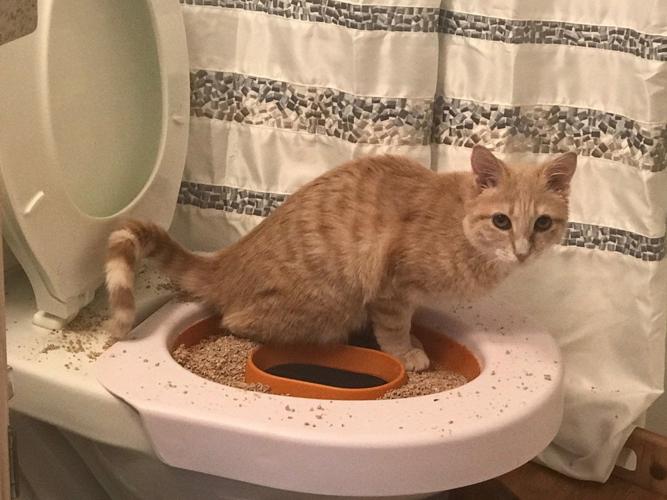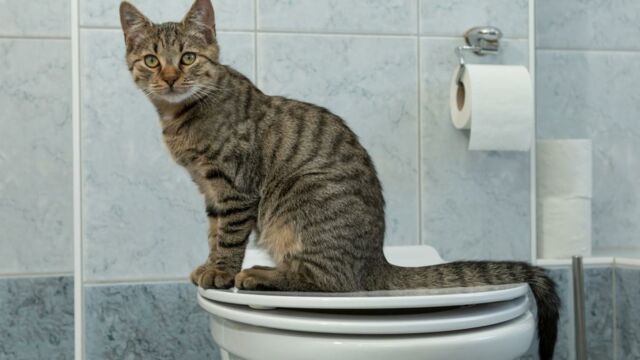My Significance of Not Flushing Animal Waste Down the Toilet
My Significance of Not Flushing Animal Waste Down the Toilet
Blog Article
We have stumbled upon this great article pertaining to Don't Flush Your Pets Poo Down The Loo, Vet Warns below on the net and think it made good sense to write about it with you on my blog.

When it comes to disposing of waste, specifically animal waste, many people usually consider the practical choice of flushing it down the commode. Nonetheless, this seemingly simple option can have severe repercussions for the atmosphere and public health. In this short article, we'll discover why flushing animal waste down the commode is a bad concept and supply alternate methods for proper disposal.
Introduction
Proper waste disposal is essential for preserving environmental sustainability and public health. While it might seem harmless to purge animal waste down the bathroom, it can cause various problems, both for the setting and human well-being.
Risks of flushing pet waste
Ecological influence
Flushing pet waste presents unsafe bacteria and virus right into waterways, which can adversely influence aquatic environments. These pathogens can pollute water resources and injury aquatic life, interfering with delicate environments.
Public health worries
Pet waste has dangerous microorganisms such as E. coli and Salmonella, which can posture serious health and wellness dangers to people. Flushing pet waste down the bathroom can pollute water supplies, leading to the spread of diseases and infections.
Alternatives to flushing
Instead of flushing animal waste down the commode, there are a number of alternative disposal methods that are more eco-friendly and hygienic.
Composting
Composting pet waste is an eco-friendly means to throw away it. By composting, organic matter is broken down right into nutrient-rich soil, which can be used to feed gardens and plants.
Landfill disposal
Disposing of pet waste in a land fill is an additional choice. While not as environmentally friendly as composting, it is a safer option to flushing, as it prevents the contamination of water resources.
Family pet waste disposal systems
There are customized pet waste disposal systems readily available that safely and hygienically get rid of animal waste. These systems frequently use enzymes to break down waste and eliminate smells.
Steps to correct pet garbage disposal
To make certain appropriate disposal of pet waste, adhere to these actions:
Scooping and bagging waste
Consistently scoop and bag pet waste using biodegradable bags. This avoids waste from polluting the setting.
Using marked waste bins
Dispose of bagged pet waste in marked waste bins, such as compost bins or land fill bins. Prevent flushing it down the commode at all costs.
Cleaning up litter boxes and animal locations routinely
Consistently clean litter boxes and pet locations to avoid the build-up of waste and microorganisms. Usage pet-safe cleansing items to preserve health.
Advantages of proper disposal approaches
Adopting correct disposal methods for animal waste supplies several benefits:
Reduced environmental pollution
Appropriate disposal approaches decrease the danger of environmental pollution, protecting rivers and ecological communities from contamination
Decreased danger of water contamination.
By avoiding flushing pet waste down the bathroom, the threat of water contamination is considerably decreased, protecting public health.
Improved sanitation and hygiene
Correct disposal techniques promote far better sanitation and health, creating a much safer atmosphere for both humans and animals.
Conclusion
Finally, purging pet waste down the commode is damaging to the environment and public health. By adopting different disposal techniques and adhering to appropriate waste monitoring methods, we can reduce the unfavorable effect of pet waste and add to a cleaner, much healthier planet.
What To Do With Dog Poo – The Do's And Don'ts Of Disposing Of Faeces
Dog poo bins
Some councils provide dedicated dog waste bins in popular dog-walking areas that can take dog poo that has been bagged but you can legally dispose of dog waste in any public litter bin, as long as it is securely bagged. This also applies to your wheelie bin at home.
Do not flush
Water companies do not recommend flushing dog faeces down the toilet because certain parasites can survive the water processing treatment and are potentially harmful to humans. You should also never consider flushing dog poo that has been bagged down the toilet as the bags will not break down and instead create severe blockages in the sewage system.
In the woods
The Forestry Commission promotes a ‘stick and flick’ method for dealing with waste in the woods. This means finding a stick and using it to flick any poo from off the path so that it is out of the way of other walkers. You could also bury it as long as it is not in an area where there might be livestock.
Livestock
Parasites found in dog poo can be transmitted to livestock if they inadvertently eat infected faeces that has been left on grazing land. This could result in the death of sheep or abortion in cattle so you should always make sure you pick up your dog’s waste in fields where livestock could be present.

Consistently clean litter boxes and pet locations to avoid the build-up of waste and microorganisms. Usage pet-safe cleansing items to preserve health.
Advantages of proper disposal approaches
Adopting correct disposal methods for animal waste supplies several benefits:
Reduced environmental pollution
Appropriate disposal approaches decrease the danger of environmental pollution, protecting rivers and ecological communities from contamination
Decreased danger of water contamination.
By avoiding flushing pet waste down the bathroom, the threat of water contamination is considerably decreased, protecting public health.
Improved sanitation and hygiene
Correct disposal techniques promote far better sanitation and health, creating a much safer atmosphere for both humans and animals.
Conclusion
Finally, purging pet waste down the commode is damaging to the environment and public health. By adopting different disposal techniques and adhering to appropriate waste monitoring methods, we can reduce the unfavorable effect of pet waste and add to a cleaner, much healthier planet.
What To Do With Dog Poo – The Do's And Don'ts Of Disposing Of Faeces
Dog poo bins
Some councils provide dedicated dog waste bins in popular dog-walking areas that can take dog poo that has been bagged but you can legally dispose of dog waste in any public litter bin, as long as it is securely bagged. This also applies to your wheelie bin at home.
Do not flush
Water companies do not recommend flushing dog faeces down the toilet because certain parasites can survive the water processing treatment and are potentially harmful to humans. You should also never consider flushing dog poo that has been bagged down the toilet as the bags will not break down and instead create severe blockages in the sewage system.
In the woods
The Forestry Commission promotes a ‘stick and flick’ method for dealing with waste in the woods. This means finding a stick and using it to flick any poo from off the path so that it is out of the way of other walkers. You could also bury it as long as it is not in an area where there might be livestock.
Livestock
Parasites found in dog poo can be transmitted to livestock if they inadvertently eat infected faeces that has been left on grazing land. This could result in the death of sheep or abortion in cattle so you should always make sure you pick up your dog’s waste in fields where livestock could be present.

Do you enjoy reading about Should you flush animal waste down the toilet? Write a remark directly below. We will be pleased to know your responses about this write up. We hope that you come back again before long. Enjoyed reading our blog entry? Please share it. Let somebody else locate it. I truly appreciate reading our article about 10 Things You Should Never Flush Down The Toilet.
Appointment Report this page